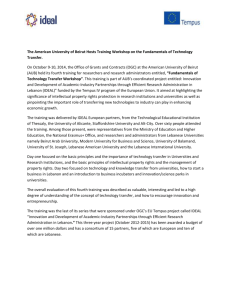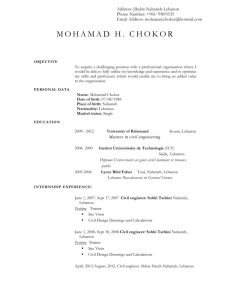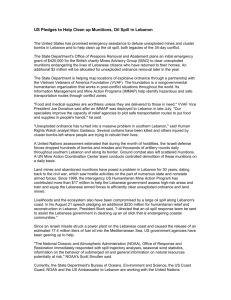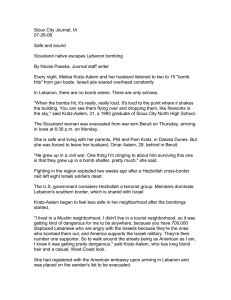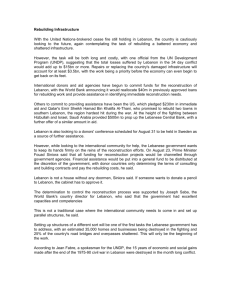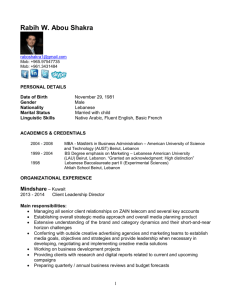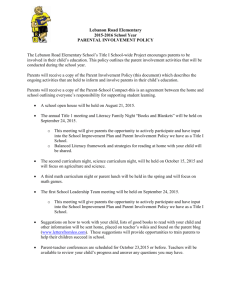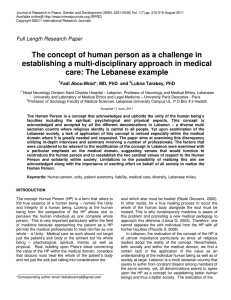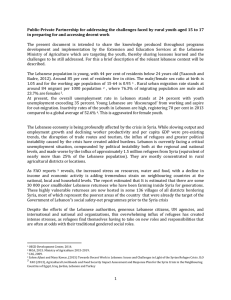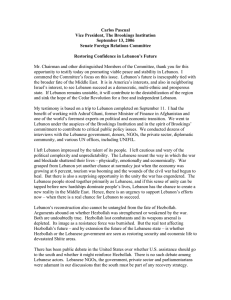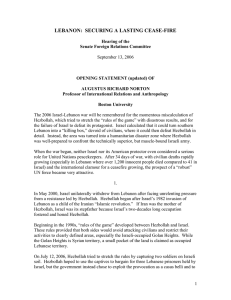Senate Committee on Foreign Relations Chairman Richard G. Lugar Opening Statement for
advertisement
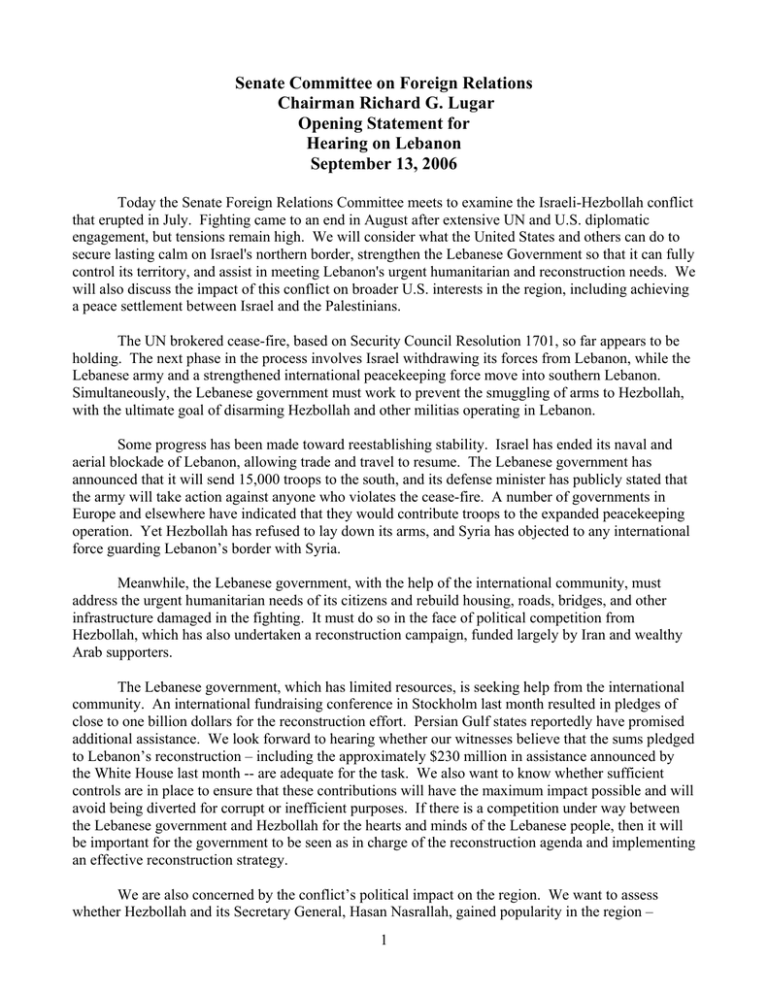
Senate Committee on Foreign Relations Chairman Richard G. Lugar Opening Statement for Hearing on Lebanon September 13, 2006 Today the Senate Foreign Relations Committee meets to examine the Israeli-Hezbollah conflict that erupted in July. Fighting came to an end in August after extensive UN and U.S. diplomatic engagement, but tensions remain high. We will consider what the United States and others can do to secure lasting calm on Israel's northern border, strengthen the Lebanese Government so that it can fully control its territory, and assist in meeting Lebanon's urgent humanitarian and reconstruction needs. We will also discuss the impact of this conflict on broader U.S. interests in the region, including achieving a peace settlement between Israel and the Palestinians. The UN brokered cease-fire, based on Security Council Resolution 1701, so far appears to be holding. The next phase in the process involves Israel withdrawing its forces from Lebanon, while the Lebanese army and a strengthened international peacekeeping force move into southern Lebanon. Simultaneously, the Lebanese government must work to prevent the smuggling of arms to Hezbollah, with the ultimate goal of disarming Hezbollah and other militias operating in Lebanon. Some progress has been made toward reestablishing stability. Israel has ended its naval and aerial blockade of Lebanon, allowing trade and travel to resume. The Lebanese government has announced that it will send 15,000 troops to the south, and its defense minister has publicly stated that the army will take action against anyone who violates the cease-fire. A number of governments in Europe and elsewhere have indicated that they would contribute troops to the expanded peacekeeping operation. Yet Hezbollah has refused to lay down its arms, and Syria has objected to any international force guarding Lebanon’s border with Syria. Meanwhile, the Lebanese government, with the help of the international community, must address the urgent humanitarian needs of its citizens and rebuild housing, roads, bridges, and other infrastructure damaged in the fighting. It must do so in the face of political competition from Hezbollah, which has also undertaken a reconstruction campaign, funded largely by Iran and wealthy Arab supporters. The Lebanese government, which has limited resources, is seeking help from the international community. An international fundraising conference in Stockholm last month resulted in pledges of close to one billion dollars for the reconstruction effort. Persian Gulf states reportedly have promised additional assistance. We look forward to hearing whether our witnesses believe that the sums pledged to Lebanon’s reconstruction – including the approximately $230 million in assistance announced by the White House last month -- are adequate for the task. We also want to know whether sufficient controls are in place to ensure that these contributions will have the maximum impact possible and will avoid being diverted for corrupt or inefficient purposes. If there is a competition under way between the Lebanese government and Hezbollah for the hearts and minds of the Lebanese people, then it will be important for the government to be seen as in charge of the reconstruction agenda and implementing an effective reconstruction strategy. We are also concerned by the conflict’s political impact on the region. We want to assess whether Hezbollah and its Secretary General, Hasan Nasrallah, gained popularity in the region – 1 notwithstanding the suffering they brought upon the Lebanese people. Some observers have contended that extremists preaching confrontation and violence against Israel have been strengthened in relation to moderate Arabs, such as Palestinian President Mahmoud Abbas, who espouse negotiation and coexistence. Regardless of whether this view is entirely accurate, the United States must play an active role in strengthening the Lebanese government and reinvigorating the quest for a resolution to the IsraeliPalestinian conflict. We are delighted to be joined by two distinguished panels to help us assess these issues and evaluate policy options. On the first panel, we welcome Mr. David Welch, Assistant Secretary of State for Near Eastern Affairs, who will provide the Administration’s views. On our second panel we welcome three experts from the private sector. Dr. Paul Salem, Director-designate of the Carnegie Middle East Center in Beirut, is an expert on Lebanon’s complex politics. Ambassador Carlos Pascual, Vice President and Director of Foreign Policy Studies at the Brookings Institution, recently served as Director of the State Department’s Office of Reconstruction and Stabilization and has just returned from a visit to Lebanon. And Dr. Augustus Norton, Professor of International Relations and Anthropology at Boston University, is an expert on Lebanon’s Shi’a community and Hezbollah. We thank our witnesses and look forward to their insights. ### 2
